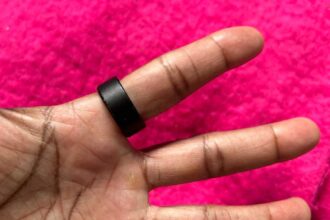
Once the domain of aging TV stars, hawking health products from vitamins to diabetes supplies to a geriatric demographic, A-list celebrity endorsements of health care products are positively trendy. Migraine sufferer Lady Gaga has a deal with Nurtec ODT, a prescription drug that treats migraines from pharma company Pfizer. “This Is Us” actor Mandy Moore is contracted by Incyte to promote Opzelura, an eczema treatment. Now Kansas City Chiefs tight end Travis Kelce, who is making headlines as Taylor Swift’s current paramour, is the latest — and buzziest — pharma spokesperson. In a campaign promoted by Pfizer, he encourages people to get a “twofer”—a Covid shot and flu shot at the same time.
But there’s a problem here for Kelce and Pfizer (and it’s not Jets QB and anti-vaxxer Aaron Rodgers’ trash talking): Celebrity endorsements to promote health behavior change don’t work, at least not in the way you might think.
“Selling” health is not the same as selling shoes. Classic research in health campaign design shows that tactics used to effectively promote health behaviors are not the same as ones used to sell us on the “newest and greatest” consumer goods.
Health is a highly personal and private issue. Our health encompasses all our fears and frailties as well as our quality of life. HIPAA supports our concern that highly personal aspects about us in the wrong hands, could affect our lives, from employment to insurance coverage and more.
Research has shown that when it comes to our health, motivating behavior change is a difficult thing. Essentially, if we’re not already doing the behavior by choice, it is difficult to convince us to do something different. We tend to downplay, discredit, or even ignore suggestions that run contrary to our current behaviors and interests, even to our own detriment.
Of course, the medical community is constantly striving to come up with new ways to reach this stubborn-to-change market. In the case of vaccines that save lives, it’s imperative to reach those who are hesitant. However, this audience is highly suspicious and resistant to “being sold” on something, whether a pill or a vaccine. Persuading them to make a health behavior change is Sisyphean.
But not impossible. The message must discuss the benefits the action will provide, as well as effectively reduce objections and increase their confidence of successfully engaging in the behavior change. More importantly, all of this must be done by a credible source who this audience trusts. They must believe the spokesperson understands health and medicine. Fail on any of these points and you lose the consumer. Health messaging designed to change health behaviors is unforgiving.
Celebrities rarely satisfy any of these criteria. Sure, one of Lady Gaga’s Little Monsters who suffers from migraines might consider Nurtec because the singer publicly stated the drug helped her overcome her migraines. Similarly, a Mandy Moore fan with eczema who is struggling with treatment could give Opzelura a try since, like Gaga, Moore has firsthand experience with the condition. However, in both these scenarios, the key is that they are dealing with consumer choice, not consumer behavior change. In cases like these, consumers are already inclined towards the health action being advertised and the celebrities are serving to influence their choice of products, often effectively.
However, you can’t argue Gaga or Moore are medical experts. Nor should consumers trust celebrities to be a credible source for health information. These are important qualities in cases where health behavior change is being attempted. Travis Kelce’s presence in a vaccine commercial potentially makes people aware of the idea of getting the Covid and flu shots at the same time, which public health officials are promoting. However, his endorsement won’t change the minds or behaviors of anyone undecided or against them. It serves merely as a reminder or reinforcement for those who were already going to get the vaccine.
In contrast, anti-vaxxers will perceive Kelce’s presence as confirmation that vaccines are a bad decision, particularly around this politically polarized public health issue. More importantly, the group that is of primary concern, the undecided, will see the commercial and move on, minds unchanged. What does a tight end know about vaccines?
The result of the costly ad: The celebrity reinforced the action of those who were already going to do the behavior, entrenched those even more who were against the behavior, and was ignored by those who were the actual focus of the commercial in the first place. Indeed, the promo did nothing to boost Pfizer’s bottom line. The pharma company lost more than $2 billion in the third quarter due to lackluster sales of their Covid products.
In addition, celebrity endorsements potentially bring unwanted baggage to a health issue that cannot afford negative press. Celebrities tend to attract two groups of people: fans who adore them, and critics who live to attack them. While using a celebrity for a health issue endorsement might bring positive views by fans, it’s still not enough to engage behavior change if those fans aren’t already in the “pro” camp. Health issues are simply too complicated and too personal. Fans will still separate feelings for the celebrity from their decision to engage in a healthy behavior.
This is often reversed in cases of critics with negative views. Rather than separating the negative feelings from the health product, the negative views of the celebrity transfer to the advertised product, compounding the already existing adverse feelings about engaging in the specific health action. Now these “anti” groups have additional justification to shun a health behavior or product.
Health messaging is already difficult enough. Unfortunately, in the classic case of “if it isn’t broke, don’t fix it,” medical advertisers are using the same celebrity tactics that have proven successful in product and service advertising. Despite best intentions, this tactic fails to move the needle, so to speak, when it comes to creating health behavior change. At best, these celebrity endorsements serve as alerts, making audiences aware of an issue, but they don’t change minds or, more importantly, actions. At worst the ads provide additional justifications for those who don’t want to adopt the health behavior change to avoid the issue or product altogether. Given that celebrity endorsements are an expensive investment, medical organizations should pause and consider what they are truly paying for. Not even Taylor Swift can persuade anti-vaxxers to get the jab.
Christopher Morse, Ph.D., is professor and chair of the Department of Communication and Language Studies at Bryant University.




